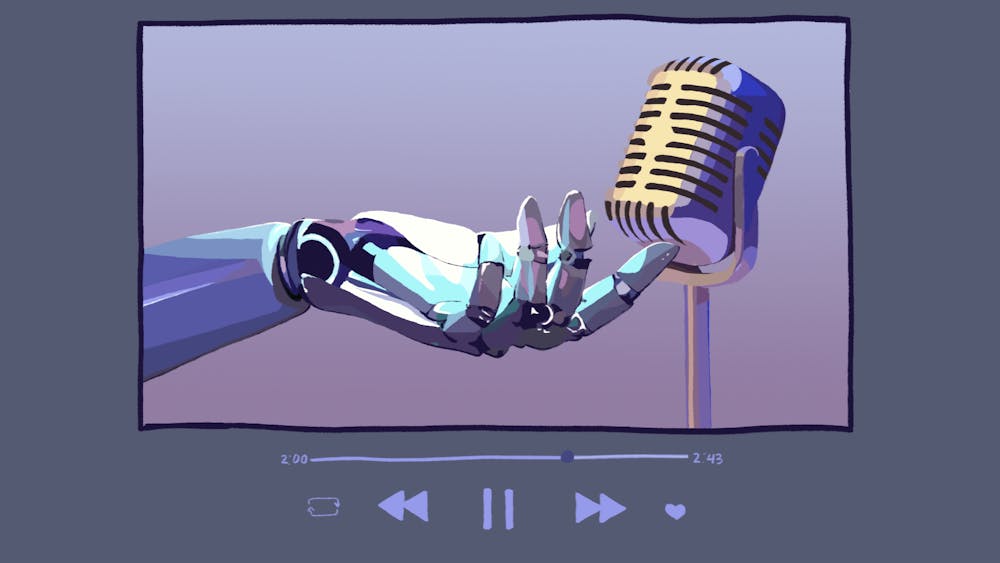The day has finally come. You can type a few words on your computer and generate an entire combination of song lyrics with chords that never existed before. With the rise of AI, programs like ChatGPT have been using language technology to fix code, compose text messages, and write essays. Now, many artists can use these same AI tools to aid them in the process of creating more captivating melodies and song lyrics only at the click of a button. This begs the question: how will AI–generating tools affect the music industry as we know it today?
Many recent attempts have been made to generate music using AI software such as WaveAI. The most noteworthy is Curtiss King’s DIY 2 album which had been number one on the iTunes Hip Hop Charts in August 2022. Artists have already begun capitalizing on software such as WaveAI to spark creativity. WaveAI specifically claims to be “Powering the next generation of human expression” through its two features, LyricStudio and MelodyStudio. While LyricStudio provides lyrics, suggestions based on the genre, and rhyme schemes, MelodyStudy presents original ideas for melodies and chords based on the lyrics inputted by the musician.
Maya Ackerman, the CEO of WaveAI, explains the role of the software: “Our AI is not designed to compete with musicians or steal the spotlight, but instead be an ally acting as a humble sage, sitting quietly in the background until you need its help.”
Artists such as King have mainly used AI as a source of inspiration. Rather than replacing artists, AI has been developed more so to generate ideas to create more emotionally complex and innovative songs. Songs generated by AI will never be able to replicate the same individuality and emotions as songs written by people. Society has always seen art and music as outlets to express human creativity—AI can’t oust people. Musicians still need to draw upon their personal experiences to create music that people can relate to on an emotional level.
Although a few songs have been created by AI alone, no AI–generated songs have become truly popular. Most songs composed by AI have not gone mainstream because they are not as meaningful and are unable to draw upon key human experiences in a way that is relatable to listeners. AI won’t be taking the jobs of songwriters, because they can’t compose genuine and relatable lyrics about important milestones such as the euphoria and exhilaration of falling in love.
AI has been used by artists and music enthusiasts alike. Applications such as Endel and Tuney have customized sounds, music, videos, and podcasts by tailoring them to the user’s preferences. For example, with an Endel subscription, users can listen to personalized soundscapes in order to focus more efficiently, lower stress levels, or sleep better. The app uses technology to generate music with tempos and melodies that match users' heart rates, locations, and step counts. With these unique features, apps such as Endel won’t replace songwriters, but Spotify might have some competition.
Instead of artificial intelligence replacing musicians in the future, machines and artists will coexist and collaborate together. For example, technology has already led to a rise in the creation of mashups and lo–fi music. By introducing editing elements such as frequencies, saturation, and distortion, anything can be turned into lo–fi and provide listeners with a different dimension of the song.
AI can be used as a major tool that makes composing music more efficient and targets sounds to listeners' tastes. With the development of AI, no one would have imagined that rather than replacing songwriters, musicians can increase their lyrical creativity and style in harmony with advanced technology.

